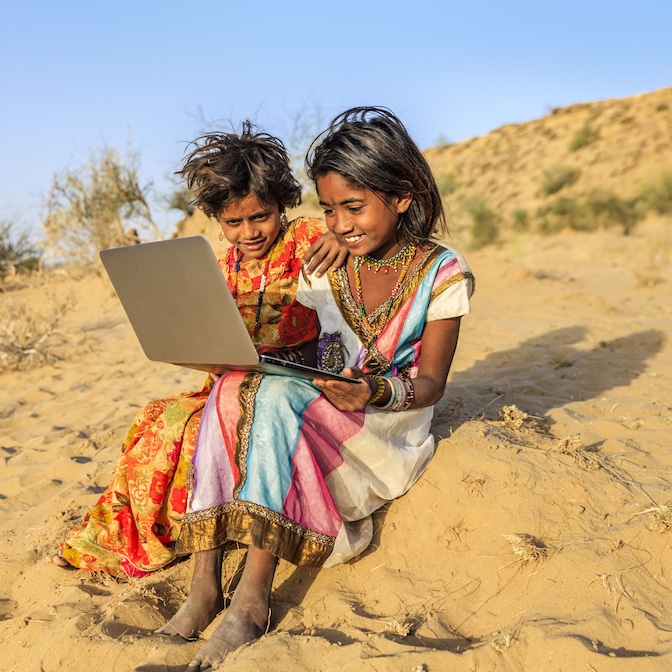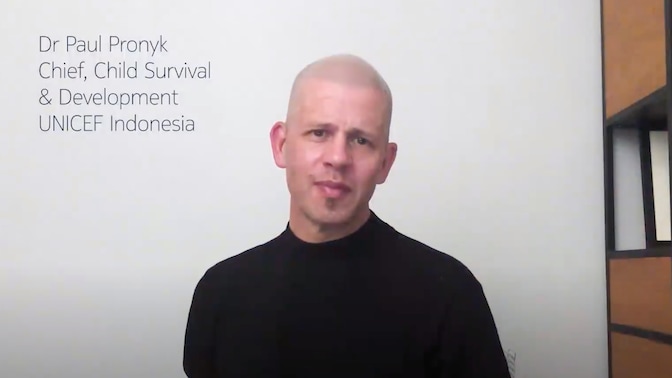Why respecting Human Rights is even more important in this extraordinary year

This has undoubtedly been an extraordinary year. It’s a year where we have had to deal with a global pandemic that has caused seismic shifts in how we live our lives. This extraordinary year also has potential impacts on the respect and protection of human rights in a variety of areas.
Covid-19 has raised practical questions concerning how to honor and uphold human rights such as the right to education and healthcare in light of quarantine and limited freedom of movement, or the right to privacy when mobile apps and tracing data are used for Covid control, or access to critical community information and much more. We believe communications technology has an important role to play in a range of situations.
New technologies as well as new uses of existing technologies are helping keep society connected but also can potentially open the door for new or greater forms of misuse. So as a supplier of communication technology, how do we ensure we uphold the highest ethical standards during such times of major and increasingly fast changes.
In terms of protecting privacy and ensuring our technology is not misused, at Nokia we have a rigorous Human Rights Due Diligence process to screen the use cases of our technology and we will never knowingly allow our products or services to be misused. In extraordinary times our due diligence process and policy around human rights are more important than ever. To find out more on those click here: Episode 1: Human Rights Due Diligence | Nokia

Ethics of technology
During this year of extraordinary suffering and perhaps more than ever before, technology has the potential to help solve many problems created by the current global health crisis. Nokia has created a variety of technical solutions to be used as tools in managing the COVID-19 pandemic. Throughout the entire creation and marketing process, steps were followed, risks were assessed, and mitigating measures were taken to ensure that those solutions – particularly those involving a potential higher risk to individual’s rights and freedoms – meet not only legal requirements, but also adhere to higher, self-imposed standards in line with the level of use and the expected societal impact of these solutions.
At times when the magnitude of the health crisis demands urgent actions, ensuring that our solutions achieve the right balance between potentially conflicting values is just as important as the purpose of the solutions. Where AI and ML-based solutions are being deployed, ethical and societal consequences have to be assessed in equal measure to the applicable legal conditions. To ensure maximum benefits while minimizing potential harm, Nokia has chosen to attach even stricter than usual conditions of offer to its COVID-19 technical solutions, which directly relate to the potential level of impact on individuals’ rights and freedoms.
Given the increased level of risk linked to the use of new technologies, the requirements imposed throughout the entire lifecycle of these solutions pertain not only to technical robustness and security, privacy and data governance, but also to transparency, diversity, non-discrimination and fairness, individual and societal well-being and accountability. These requirements are based on the applicable legal frameworks, as well as on Nokia’s own corporate values and its principles for ethical AI: transparency, justice and fairness, non-maleficence, responsibility, privacy, trust, dignity, solidarity, beneficence, trust and sustainability. The United Nations Guiding Principles and the Ethics Guidelines for a Trustworthy AI of the European Commission’s High Level Experts Group on Artificial Intelligence also continue to provide key frameworks.
Nokia believes that facilitating genuine societal and individual well-being can only be accomplished if the technology we create upholds fundamental rights and ethical and moral principles.
Making the invisible visible with UNICEF
The global pandemic has also widened the gap between those who do have access to certain human rights, such as the right to healthcare, and those who don’t. The role of technology and its impact on enabling improved healthcare outcomes is even more critical at this time. Nokia has supported UNICEF in Indonesia since 2017 on building an mHealth program which has been redirected to help bridge this gap during these extraordinary times. Listen to how technology can change the game in a health crisis.
Human rights in the Supply Chain during a global pandemic
This was also an extraordinary year for responsible sourcing and the supply chain. Firstly, to adapt to the restrictions, lockdowns and uncertainty brought by Covid 19 both in terms of restricted movement but also changes in supply chains, due diligence planning required greater agility. For example, in some cases there were fast ramp ups in various sites and geographies which meant increased working hours for the employees in order to try and keep up with demand. Simultaneously, this required us to educate, communicate and emphasize more than ever to decision makers in our suppliers the need to adhere to the code of conduct even in these extraordinary circumstances.
Much of the normal due-diligence activities were moved online due to restrictions both to our own auditors as well as strict visitor restrictions at supplier premises based on health guidelines. The number of onsite audits had to be limited to certain geographies.
However, whilst our onsite activities were restricted, we were able to boost our digital activities, ramping up online workshops for suppliers and a series of awareness raising webinars on modern slavery, responsible sourcing, and health and safety amongst others. These were well received and had high attendance rates.
We conducted several evaluation rounds of suppliers, completing over 330 evaluations on EcoVadis including labor, safety and environmental elements. Moving online also allowed us to focus more on further developing improvement activities with suppliers.
Connectivity has never been more critical, and it brings multiple responsibilities in terms of human rights. We are proud of our ethical approach to doing business. Finding out how to improve is equally important especially during such an extraordinary year. Engaging with the wider community, working together, listening and learning is how we believe we can improve. Learn more about Networks that keep us going.

